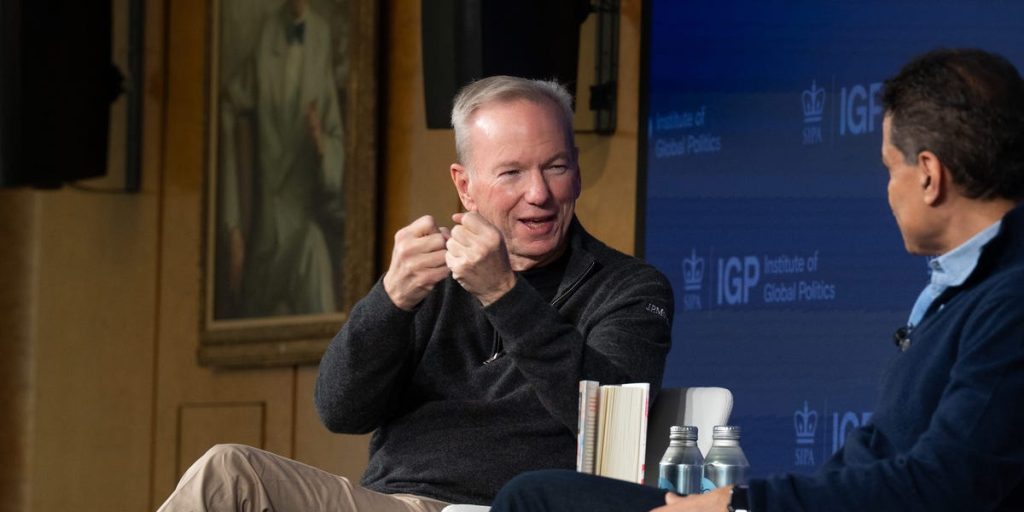Eric Schmidt took over as Google’s CEO in the midst of the dot-com bubble burst. He doesn’t anticipate the same fate for AI.
The former Google executive explained why he didn’t think the AI industry was in a bubble while speaking at the RAISE Summit in Paris.
AI has expanded rapidly in the years since ChatGPT took off and Big Tech invested heavily in the industry and ignited a new talent war. With an estimated market value of $189 billion in 2023, it’s projected to grow into a $4.8 trillion industry by 2033.
While some may see signs of an eventual crash, Schmidt — who has investments in multiple AI companies, including Anthropic — pointed to hardware and the chips market as a specific sign that the market has longevity.
“You have these massive data centers, and Nvidia is quite happy to sell them all the chips,” Schmidt said. “I’ve never seen a situation where hardware capacity was not taken up by software.”
Schmidt, speaking about his conversations with AI executives, said that he’s heard talk that the AI industry is in a “period of overbuilding,” and that they’ll hit “overcapacity in two or three years.”
“They’ll say, ‘But I’ll be fine and the other guys are going to lose all their money,'” Schmidt said. “That’s a classic bubble, right?”
Related stories
Then there’s the other side of the debate, the Bay Area techies who think that reinforcement learning chains will transform the world. “If you believe that those are going to be the defining aspects of humanity, then it’s under-hyped and we need even more,” he said.
Schmidt didn’t side with either side — overcapacity or under-expansion — but he did weigh in on whether it was an industry facing a bubble-level correction.
“I think it’s it’s unlikely, based on my experience, that this is a bubble,” Schmidt said. “It’s much more likely that you’re seeing an whole new industrial structure.”
Not everyone agrees. On Wall Street, talk of a potential bubble continues to simmer.
On Wednesday, Apollo Global Management’s chief economist Torsten Sløk said that the stock market faces an even bigger bubble than the dot-com boom. The primary culprit, in his view: AI.
“The difference between the IT bubble in the 1990s and the AI bubble today is that the top 10 companies in the S&P 500 today are more overvalued than they were in the 1990s,” Sløk wrote.


